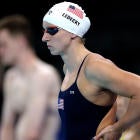Clemson won its first ACC championship in 20 years in 2011, but that did not stop coach Dabo Swinney from making a significant change to his staff. Two weeks after giving up 70 points to West Virginia in the Orange Bowl, Clemson hired long-time Oklahoma defensive coordinator Brent Venables to replace Kevin Steele.
Change has become the norm recently for reigning ACC Champions. Georgia Tech coach Paul Johnson fired defensive coordinator Dave Wommack and brought in Al Groh after winning (but later vacating) the league title in 2009. Then, Virginia Tech coach Frank Beamer uncharacteristically shook up his staff after the 2010 season, placing longtime assistants Billy Hite and Jim Cavanaugh into administrative roles to bring in son Shane Beamer and Cornell Brown, a move designed to boost recruiting.
But Swinney’s move will face more scrutiny. Venables comes with an $800k price tag, bringing Clemson’s tab on its coordinators to $2.1 million per year with offensive coordinator Chad Morris earning $1.3 million. That kind of financial commitment demands results. Speaking of Morris, the success of the offense in his first year at Clemson could put more pressure on his defensive counterpart to quickly produce.
Everything coming out of Clemson about Venables has been positive from his chemistry with the staff to his recruiting abilities. Earlier this summer, Venables helped land an oral commitment from the consensus No. 1 recruit in the 2013 class, defensive end Robert Nkemdiche from Loganville, Ga. He has rubbed off on the current players, too.
“He’s very intense,” defensive end Malliciah Goodman said at the ACC Kickoff Monday in Greensboro. “He wants us to do everything intense, just the way he would do it.”
Ultimately, Venables will be judged by how his defense performs. The task at hand is to improve a unit that finished last year ranked No. 71 nationally in total defense (394.4 yards per game), No. 81 in scoring defense (29.3 points per game), and No. 83 in rushing defense (176.9 yards per game). Clemson gave up at least 28 points in seven of its final eight games, including that Orange Bowl which soured a championship season.
Venables runs a 4-3 base defense like his predecessor, but Swinney said that Venables’s defense is one based on instinct. As a result, it is simpler and easier to grasp than Steele’s. That is something the players appreciated this spring, especially the linebacking core that Venables wants playing downhill. There also will be more zone coverage from a secondary that could start three seniors.
Expect more quarterback pressure from Clemson’s back seven this year. Under Steele in 2011, the Tigers had 24 sacks, only three of which came from outside the defensive line. Two of those three sacks came from true freshman middle linebacker Stephone Anthony, a former five star recruit with great size and speed who is as good a candidate as any in the ACC to have a breakout year in 2012. Conversely, Oklahoma had 40 sacks last year under Venables with 16 coming from non-defensive linemen.
The biggest issue will be finding quality depth along the defensive line, specifically at defensive tackle. Clemson must replace defensive end Andre Branch who led the conference with 10.5 sacks last year and all-conference defensive tackle Brandon Thompson.
With so much talent returning at the skill positions offensively, Clemson’s apparent path to success would be to lean on Chad Morris’s group early while the defense adjusts to the new scheme. However, with the offensive line having to replace four starters and the early season status of wide receiver Sammy Watkins still unclear after two misdemeanor possession charges this offseason, the offense picking up where it left off in 2011 isn’t necessarily a given.
The defense will have to be ready right from the start when it takes on Auburn in Atlanta on Sept. 1 and then travels to take on Florida State in its ACC opener three weeks later. There isn’t much national championship talk at Clemson, but Venables and his defense will have to perform because a 2-2 start will not sit well, not after a year where Kevin Steele found out even an ACC championship wasn’t enough.















